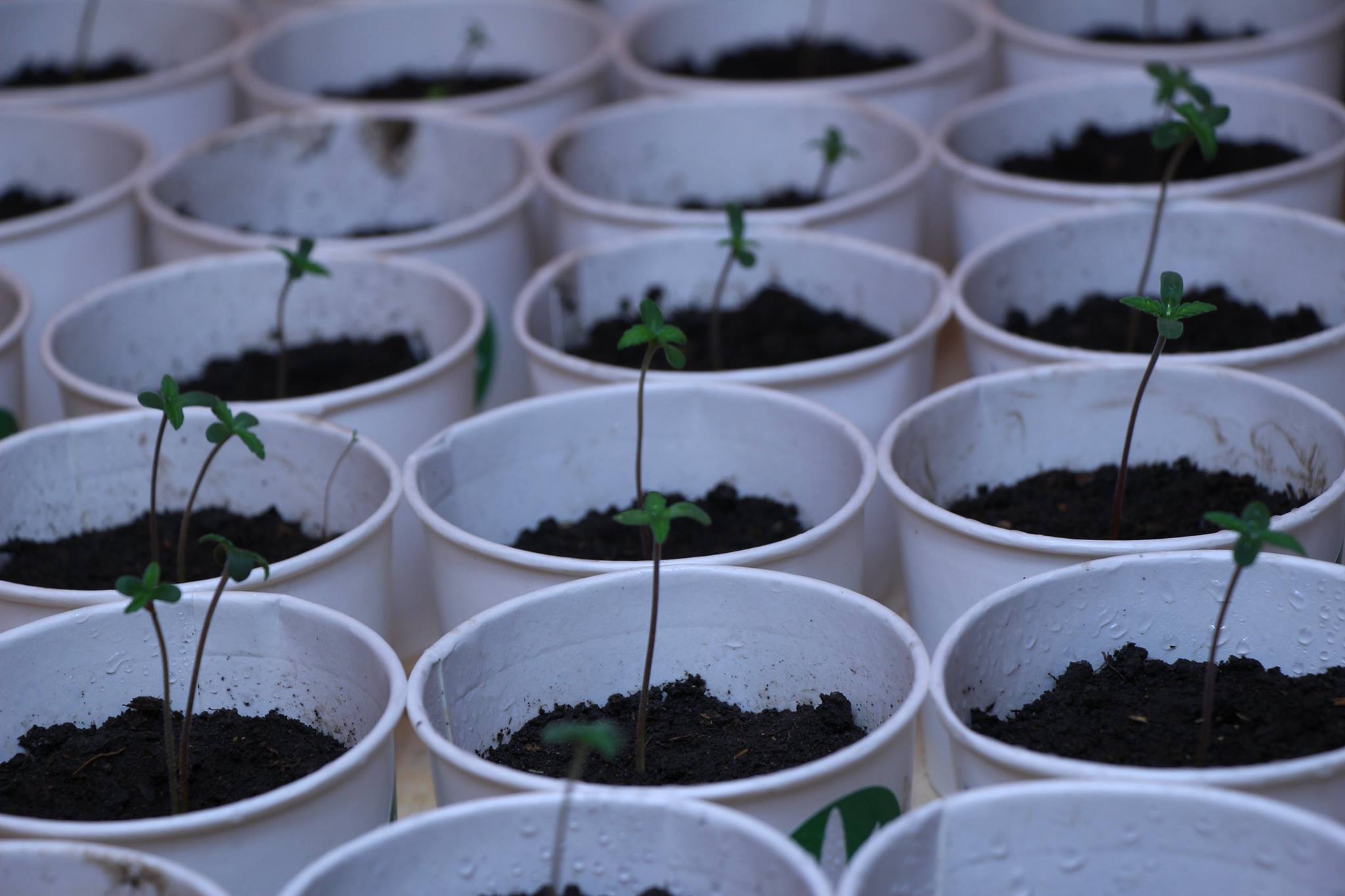
Georgia’s parliament has adopted a new law restricting cannabis use, five months after the Constitutional Court made consumption of the drug legal. Restrictions allow only those 21 or above to consume the drug and only at home.
The court ruled on 30 July that any punishment for consuming cannabis was unconstitutional.
Under the new law, people will not face even administrative punishments, such as fines, if police discover they have taken cannabis. However, the new regulations adopted by parliament on 30 November, just two days after the presidential election, imposes a number of limits making consumption without breaking the law next to impossible.
The package introduced amendments to Georgia’s code of administrative offences, criminal code, law on combating drug-related crime, and juvenile justice code.
The law bans anyone under 21 from consuming cannabis, with fines of ₾500–₾1000 ($190–$375).
Those consuming cannabis outside of the home, in the presence of children, at work or on military bases, and in schools will face fines ranging from ₾800–₾1,500 ($300–$560) for a first offence.
The new law also introduces fines of ₾1,500–₾2,000 ($560–$750) for an institutional failure to react to the offence.
Doctors, teachers, and public servants all face being barred from their professions for consuming cannabis.
The amendments imposed harsher sanctions for ‘popularising or advertising’ the drug, raising the fine from ₾500 ($190) to ₾5,000 ($1,900) for individuals and from ₾5,000 to ₾10,000 ($3,700) for legal entities.
Unlike alcohol, driving under the influence of cannabis or any other controlled substance will now be a criminal offence.
It will now be a criminal offence to supply or encourage someone to use cannabis under the age of 21, punishable by 6–10 years in prison, up from the previous 18.
The bill left in place restrictions on acquiring and possessing cannabis, with administrative fines of ₾500 for a first offence and criminal fines of a minimum ₾1,500 or up to 160 hours of community work for repeat offences within a year.
‘Protecting young people’
The 30 November bill was part of a package of amendments that originally would have licensed cannabis production in Georgia for export.
The government announced their controversial intention to develop a ‘strictly regulated’ cannabis industry for ‘pharmaceutical and cosmetic purposes’ on 11 September, and submitted the package to parliament two days later.
After meeting growing resistance from the Georgian Orthodox Church and opposition parties in the run up to presidential elections, the ruling Georgian Dream party ‘split’ the draft law package, and ultimately withdrew the cannabis industry initiative.

With cannabis exports dropped, the Interior Ministry actively advocated for the amendments which would ‘protect young people’.
Deputy Minister Natia Mezvrishvili criticised the opposition several times for not supporting the initiative.
‘It looks like opposition does not support restricting cannabis use in areas the public gathers, curbing underage people’s access to cannabis’, Mezvrishvili complained in parliament on 6 November.
Responding to drug liberalisation advocate Davit Subeliani at a parliamentary committee hearing on 30 October, Mezvrishvili said ‘Yes, the aim of the draft law is to tighten the noose in all senses [...] The Constitutional Court permitted the use of cannabis in private spaces, in all other cases, this bill is meant to tighten the noose’.
According to Sopho Verdzeuli from the Tbilisi-based Human Rights Education and Monitoring Centre (EMC), the latest amendments authored by the Interior Ministry ‘indeed stem from’ the July Constitutional Court ruling, as ‘there was no legal framework’ to regulate and define the circumstances of using what had became legal.
Verdzeuli told OC Media that as the Constitutional Court’s decision was only about consuming cannabis, in legal sense, the new regulations do not directly contradict it.
In their ruling legalising cannabis consumption, the Constitutional Court stated that it would not be unconstitutional to set restrictions on consumption to protect children or to limit its use in certain public places and institutions, as well as for some professions.
Verdzeuli noted that ‘the government used all legal mechanisms’ to put the harshest restrictions possible in place, which she said ‘won’t stand for too long’.




 6 December 2018
6 December 2018


